White Tea of Anji, traditional green tea
$ 24.40
The Green Tea that is called White
If a green tea is judged only by how umami it is, a lower grade than Tea Hong’s Anji Baipian* may already top the chart. The grace of this top quality of one of the most sought after name in green teas is not measured only by its savouriness, but its silky smooth and soft body and elegance in its taste character. Perhaps that is why the small county of Anji is never producing enough to satisfy the demand from the growing affluent class in China. That said, it is good to see a small counter trend against the taste of expensive vulgarity in that vast population.
Net weight: 40 g (1.4 oz) in wide kraft-alu pack
In stock
明前 安吉白片
Taste profile
Nose: Soft overtone of warm baked broad bean with accents of fresh herbs and honey. Touches of bouquet. Palate: Silky and extremely smooth and soft body that is umami with a touch of cream and an extremely light bite of cinnamon. Finish: Moisture stays in the mouth for a very long time and then a nutty and slightly malty sweet aftertaste.
Infusion tip
Since this is perhaps the smoothest green tea there is, some people maybe letting the leaves soaking in the infusion vessel at all time without the issue of astringency. However, this convention that you may see in some rich people’s homes in China really cannot do justice to the graceful taste profile of this much demanded label.
Give ample time for the infusion, but do empty the liquor after each infusion. You may use a high leaf ratio or a standard one and adjust the temperature and time to your preference, but note that a higher ratio does give more obvious taste characters. In the case of this supreme quality, it is true that you really can use a lot of leaves for maximum taste without the worry for astringency or bitterness.
A little note about the name of this tea
Somehow the original name of this tea, Anji Baipian, has in recent years morphed into the name of the cultivar for the tea, Anji Baicha, which literally translates as the White Tea from Anji.
Bai: White; Cha: Tea.
Anji is a small county in Zhejiang. Its rural economy largely relies on tourism, bamboo and related products, and since the revival of Anji Baicha, the tea as well.
The reason why this green tea is called white is as explained in many other tea cultivars with the name white in it: that in old rural semantics in China, the word white actually refers to lighter colour, as in the word wu ( black ) to darker colours. Young leaves in these cultivars have a relatively lighter shade of green. In Phoenix, there are the cultivars Bai-ye and Da Bai-ye ( literally White Leaf and Big White Leaf ); in Wuyi, there are Bai Jiguan ( literally White Rooster Crest ), Bai-ruixiang, Bai Qilan… etc
There is a saying that the word white comes from the tiny white hairs on its leaf shoots. This must have been propagated by people who do not know much about tea. The person who invented this theory might have seen those hairs for the first time in an Anji Baicha plant. The same kind of hair actually exist in most other tea plants. Many more abundantly. An older myth that was still popular even 10 years ago says Anji Baicha is the only true white tea. Laughable it may seem, but there are people in this world who still think fables, myths and boastful claims and other tall tales can convince. They have yet to learn to respect other people’s intellect.
Additional information
| Weight | 90 g |
|---|---|
| Dimensions | 18 × 9 × 5 cm |
| Net weight: | |
| Tea category: | |
| Class: | |
| Origin: | |
| Recommendation: | |
| TCM character: | |
| Packaging: | |
| Infusion color: | |
| Vintage |
Reviews(1)
Only logged in customers who have purchased this product may leave a review.


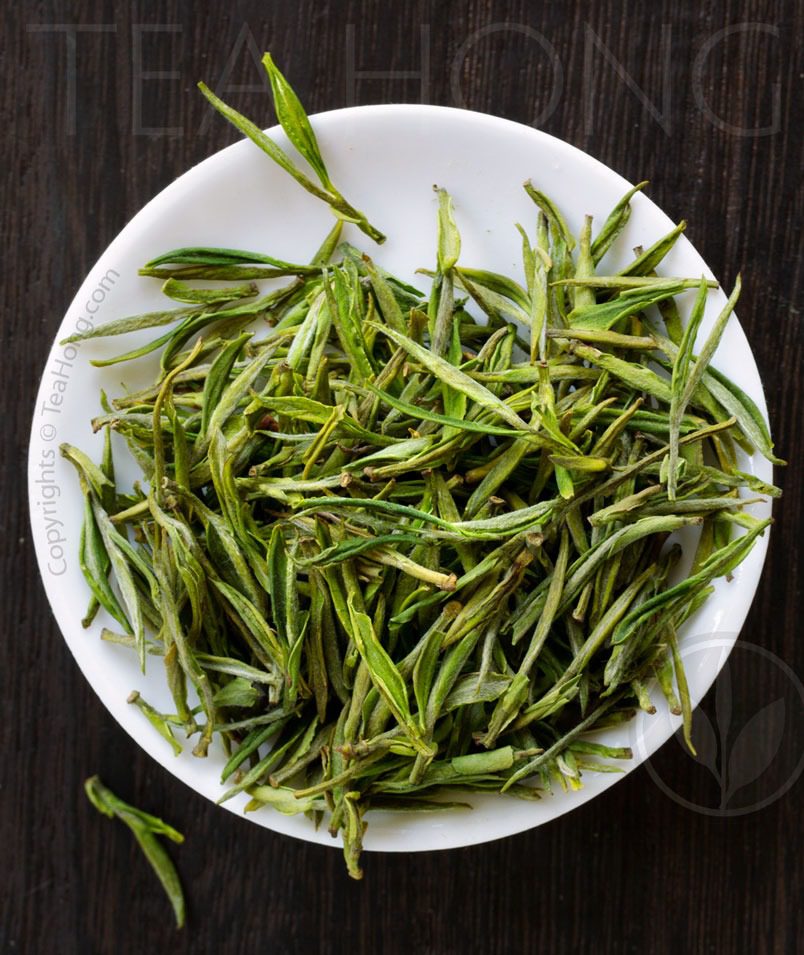
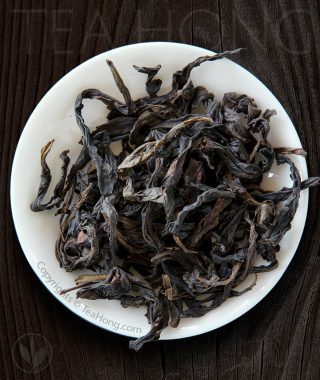
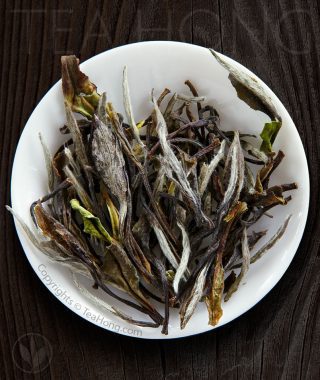
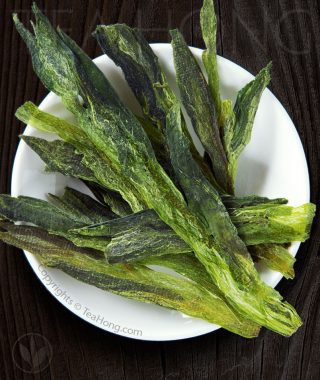
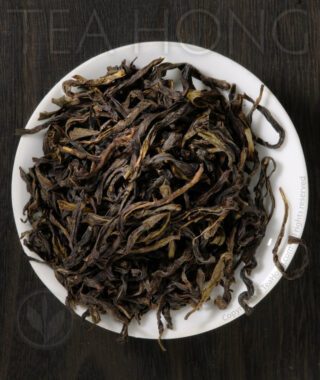
This is a top-shelf umami bomb with a nice felt effect in the body and mind. Anji Baicha is a special cultivar, not only for its distinct appearance due to a genetic mutation, but also its unique molecular composition.
The cultivar used to make the authentic version of this tea is rich in L-theanine and amino acids. As a result of the genetic mutation which limits chlorophyll biosynthesis, more of the building blocks for this green pigment are shuffled off to producing amino acids which give Anji Baicha its characteristically thick, brothy like qualities and savory mouthfeel. Even the aroma coming off the dry leaf is mesmerizing in its pungency.
In the cup, the flavor profile of Tea Hong’s Anji Baicha is superb – even though the mouthfeel is so thick you could cut it with a knife, it still manages to capture and hold many delicate flavors in perfect harmony with each other. There’s some distinct sweetness, an herbaceous quality, creamy florals and warm spices that sit in perfect unison on top of a colossal wave of umami that sits deeply in the body and really relaxes the mind.
The aftertaste is lubricating and does not dry the palate out. This “wetting” effect amplifies the length of the aftertaste and keeps the amino acids coating the tongue and extending that powerful umami quality long after the session is over.
The sensations felt in the body are wonderful, and I think one of the primary reasons why anybody and everybody should try this tea. The high concentration of amino acids induces a state of being calm yet alert, relaxed yet focused.
If you have never tried Anji Baicha before, this is the one to try, because it is a top-shelf representation of the cultivar at a very modest price. Quality of this caliber is pretty much always more expensive.